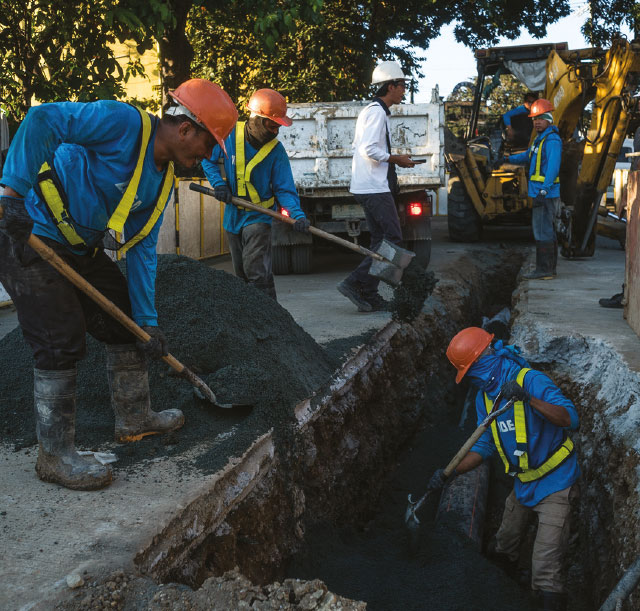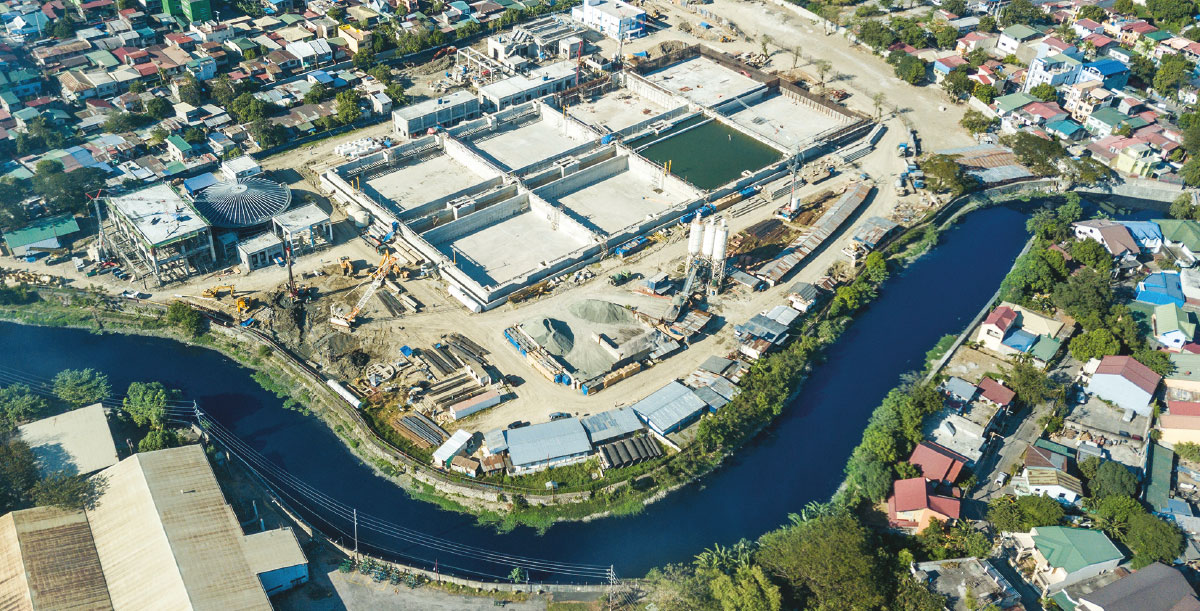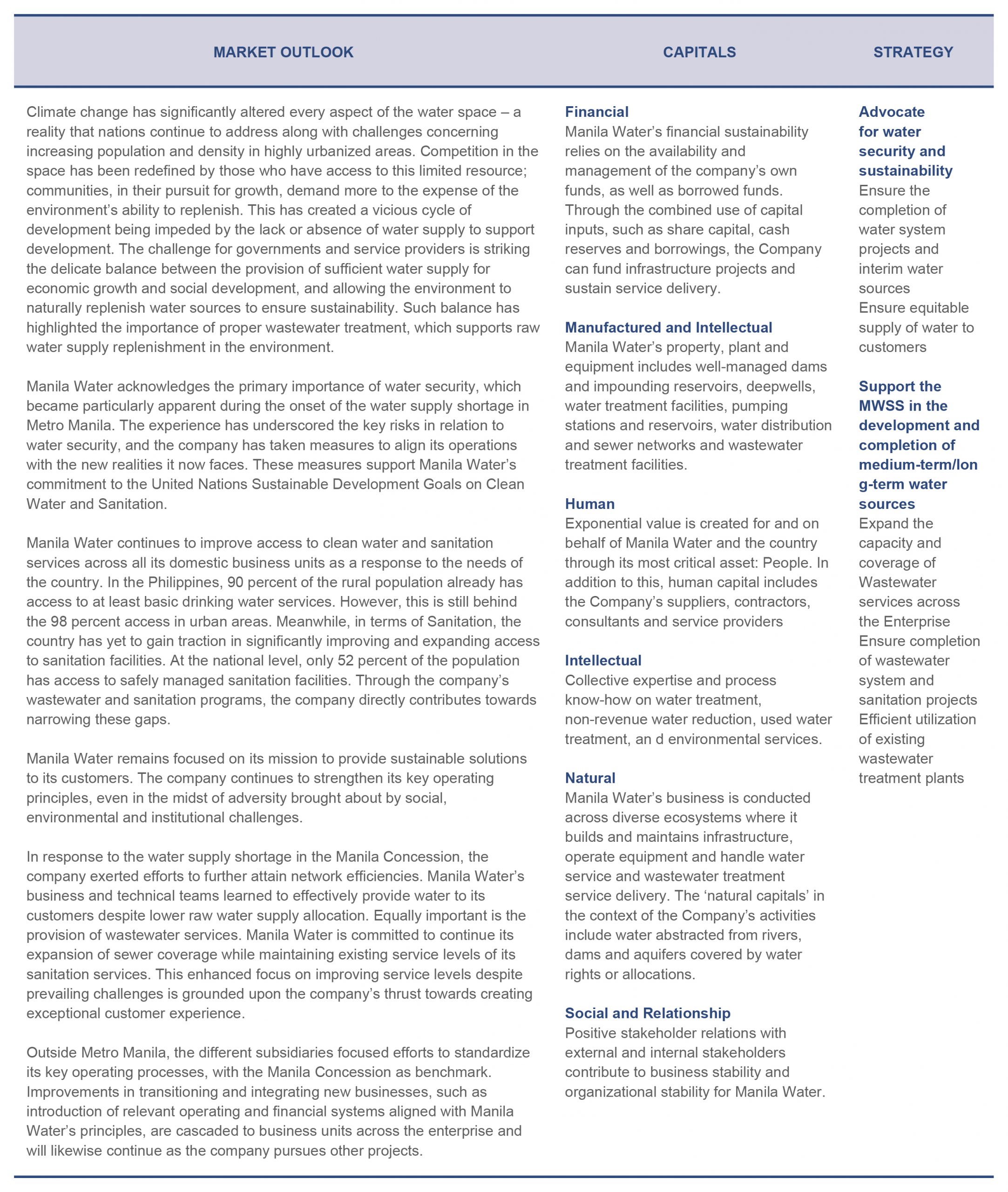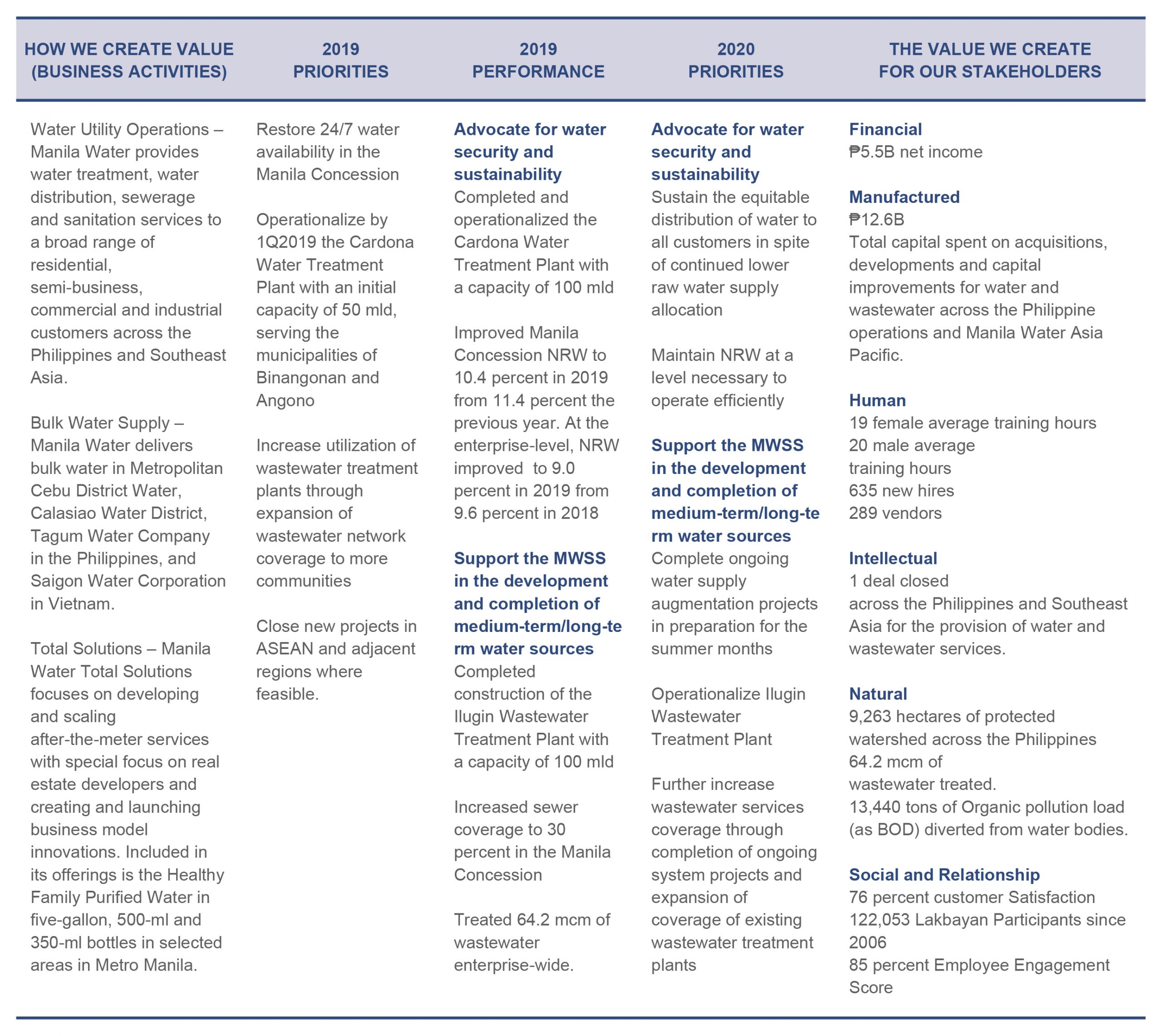WHO WE ARE
Manila Water is an operator and business builder of water, wastewater, and related assets across the Philippines and in Southeast Asia. The company has over two decades of experience and expertise which is leveraged to provide access to water and sanitation services in a way that considers key impacts on the environment and advocates responsible practices at every stage of its operations.
Manila Water’s portfolio includes the Manila Concession which is the original concession business, providing water and wastewater services to over seven million people in the eastern part of Metro Manila. Manila Water’s vehicle for domestic businesses outside the East Zone is Manila Water Philippine Ventures, with operations in key cities across the country. Internationally, Manila Water Asia Pacific was established to take advantage of new opportunities and partnerships in the ASEAN region. Lastly, Manila Water Total Solutions serves as an incubator of new business opportunities across the water value chain, driven by business and technological innovation.
MARKET OUTLOOK
Climate change has significantly altered every aspect of the water space – a reality that nations continue to address along with challenges concerning increasing population and density in highly urbanized areas. Competition in the space has been redefined by those who have access to this limited resource; communities, in their pursuit for growth, demand more to the expense of the environment’s ability to replenish. This has created a vicious cycle of development being impeded by the lack or absence of water supply to support development. The challenge for governments and service providers is striking the delicate balance between the provision of sufficient water supply for economic growth and social development, and allowing the environment to naturally replenish water sources to ensure sustainability. Such balance has highlighted the importance of proper wastewater treatment, which supports raw water supply replenishment in the environment.
Manila Water acknowledges the primary importance of water security, which became particularly apparent during the onset of the water supply shortage in Metro Manila. The experience has underscored the key risks in relation to water security, and the company has taken measures to align its operations with the new realities it now faces. These measures support Manila Water’s commitment to the United Nations Sustainable Development Goals on clean water and sanitation.
Manila Water continues to improve access to clean water and sanitation services across all its domestic business units as a response to the needs of the country. In the Philippines, 90 percent of the rural population already has access to at least basic drinking water services. However, this is still behind the 98 percent access in urban areas. Meanwhile, in terms of Sanitation, the country has yet to gain traction in significantly improving and expanding access to sanitation facilities. At the national level, only 52 percent of the population has access to safely managed sanitation facilities. Through the company’s wastewater and sanitation programs, the company directly contributes towards narrowing these gaps.
Manila Water remains focused on its mission to provide sustainable solutions to its customers. The company continues to strengthen its key operating principles, even in the midst of adversity brought about by social, environmental and institutional challenges.
In response to the water supply shortage in the Manila Concession, the company exerted efforts to further attain network efficiencies. Manila Water’s business and technical teams learned to effectively provide water to its customers despite lower raw water supply allocation. Equally important is the provision of wastewater services. Manila Water is committed to continue its expansion of sewer coverage while maintaining existing service levels of its sanitation services. This enhanced focus on improving service levels despite prevailing challenges is grounded upon the company’s thrust towards creating exceptional customer experience.











